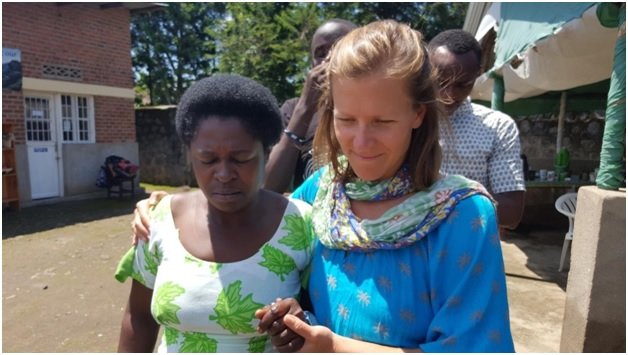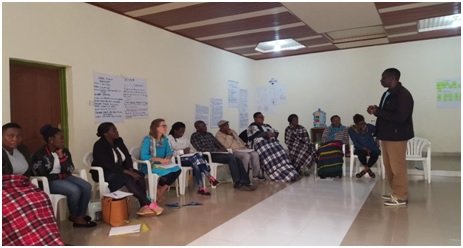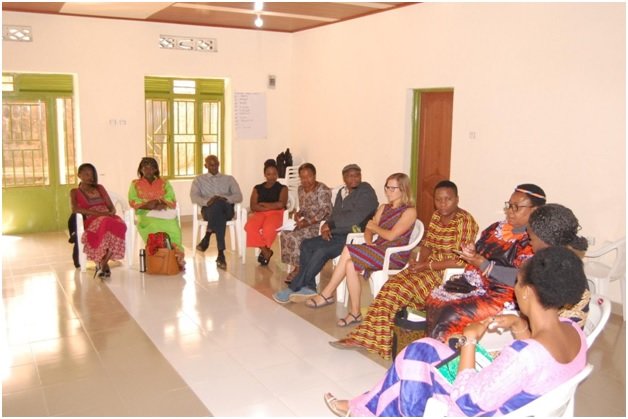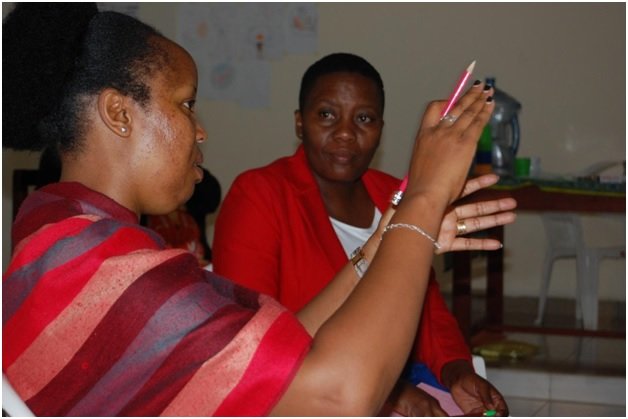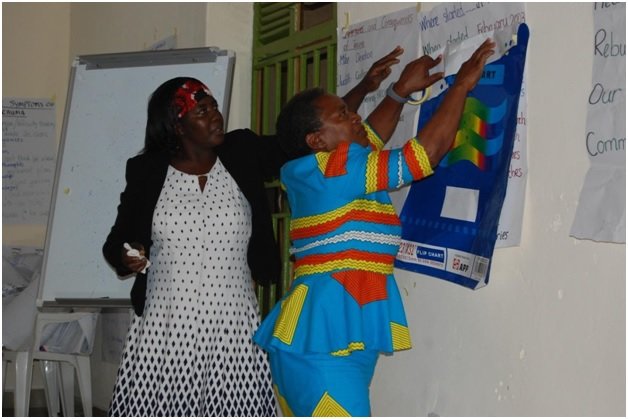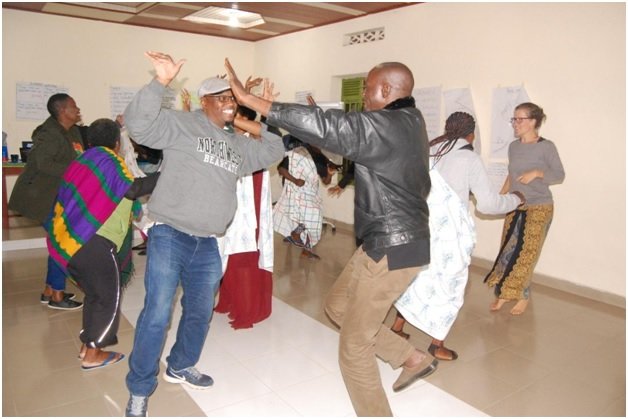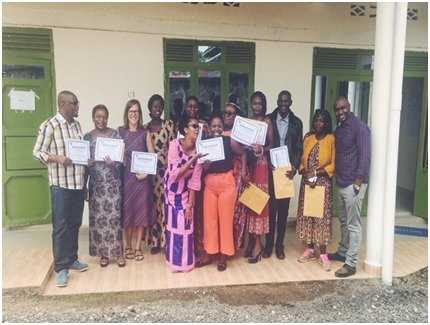By Peter Serete | Progran Coordinator
Healing and Rebuilding our Communities (HROC) International workshop in Rwanda Musanze Feb. 02-22/2020
Facilitators: Serete Peter, Anena Terry and Solange Maniraguha
The first Basic
In all international Healing and rebuilding our community workshops we always give participants an opportunity to attend a basic HROC workshop with local community members to help them have an introductory sense of how things are done in terms of the context and the methodology in delivering a workshop. In three days participants will recognize and understand Trauma, learn skills of dealing with their personal trauma, carefully begin their personal journey of healing, recognize that life continues after traumatic event and help them reconnect with their communities and rebuilt society.
During the basic workshop participants were drawn from 6 countries, we had 5 from Zimbabwe, 1 from Democratic Republic of Congo, 1 from Nigeria, 6 from Rwandans and 1 from Kenya. The workshop was conducted by three facilitators from Kenya, Uganda and Rwanda with the help of a Rwandan translator.
Local leader from the office of civil registration in the sector opened the workshop officially and assured both local and international participants of their safety and appreciated the collaboration between HROC Rwanda and the Local administration. “I welcome you all in Rwanda, we were told about your coming, Rwanda is peaceful, we like visitors, you are free to move around and visits beautiful sites here in Musanze, with thank the organizers for collaborating with local Government, this shows that for us to heal and have peace, we need to work together” Community leaders play an important role in identifying and inviting potential participants to a workshop. The process is done in fairness and balance in the selection process. During the process it is important to ask questions about the person’s symptoms and experience before immediately accepting such a participant, to ensure that the person is stable enough to participate in the workshop.
Experience and testimonies from the participant varies depending on the depth of understanding and the level of transformation towards healing, three day may not be enough, however the module is design to help individual on the underlying philosophy that each person and society has the inner capacity to heal and an inherent intuition of how to recover from trauma.
“I appreciate the methodology and how the module has been simplified to deepen our understanding, the meaningful examples were helpful, given my own time to share my traumatic experience was so enriching”
“I have been working with traumatized people in my community, I find it useful especially the support given to me by you, I felt not judged, my opinion was respected, and more importantly I was involved in all process”
“Am Glad I was given time to share my traumatic experience, sometime you feel you are alone, I have decided not to go back home again because I don’t want to meet my neighbor who killed my family members, when I was listening to people share, it gives you courage to share your own pain and find ways of getting help, I need more time and hope I will work on my fears and more importantly I will need help from facilitators”
“Facilitators gave us opportunity to share our thought and insight on our own understanding of trauma”.
The Training of Trainers
After all international participants have attended a basic HROC, they embark on a two weeks long, during this time we manage to prepare new facilitators to facilitate a basic HROC workshop, deepen their understanding of trauma, trauma recovery, listening and the role of trauma healing in reconciliation.
With mentorship of a lead facilitator the program help to develop and practice basic peer counseling and listening skills, so facilitators are accomplished healing companion in their communities
At the end of two weeks the new HROC facilitators develop and practice basic facilitation skills
In order to push into the intense and difficult journey of trauma recovery and healing, participants, facilitators and healing companions alike must have strategies, rituals and sources of strength that can serve as anchors, for many years in all our international trainings participants have come out with creative ways that keep each person connected to him or herself, to one another and God. Without these, we can lose ourselves in sea of pain and helplessness.
Some faced challenges during this one
We are sharing some of the challenges met during this one training. Some are new, others are not, but just keep coming as challenge.
-Unfinished constructions at the Hroc Center that pushes us to take some of the participants staying at the hotel. This is more challenging, when you ask people to walk after having diner, and it is late in the night.
-Using an apprentice facilitator(s) and don’t pay them anything is not fair. Spending three weeks and going back home with empty pocket… It is really challenging.
Testimonies
Recommendations for way forward
1.HROC IT participants database
2.International follow up activities
3.Being open to some adaptations if there is a need for the country/context
4.HROC facilitators gathering to be organized.
Project reports on GlobalGiving are posted directly to globalgiving.org by Project Leaders as they are completed, generally every 3-4 months. To protect the integrity of these documents, GlobalGiving does not alter them; therefore you may find some language or formatting issues.
If you donate to this project or have donated to this project, you can receive an email when this project posts a report. You can also subscribe for reports without donating.
Support this important cause by creating a personalized fundraising page.
Start a Fundraiser